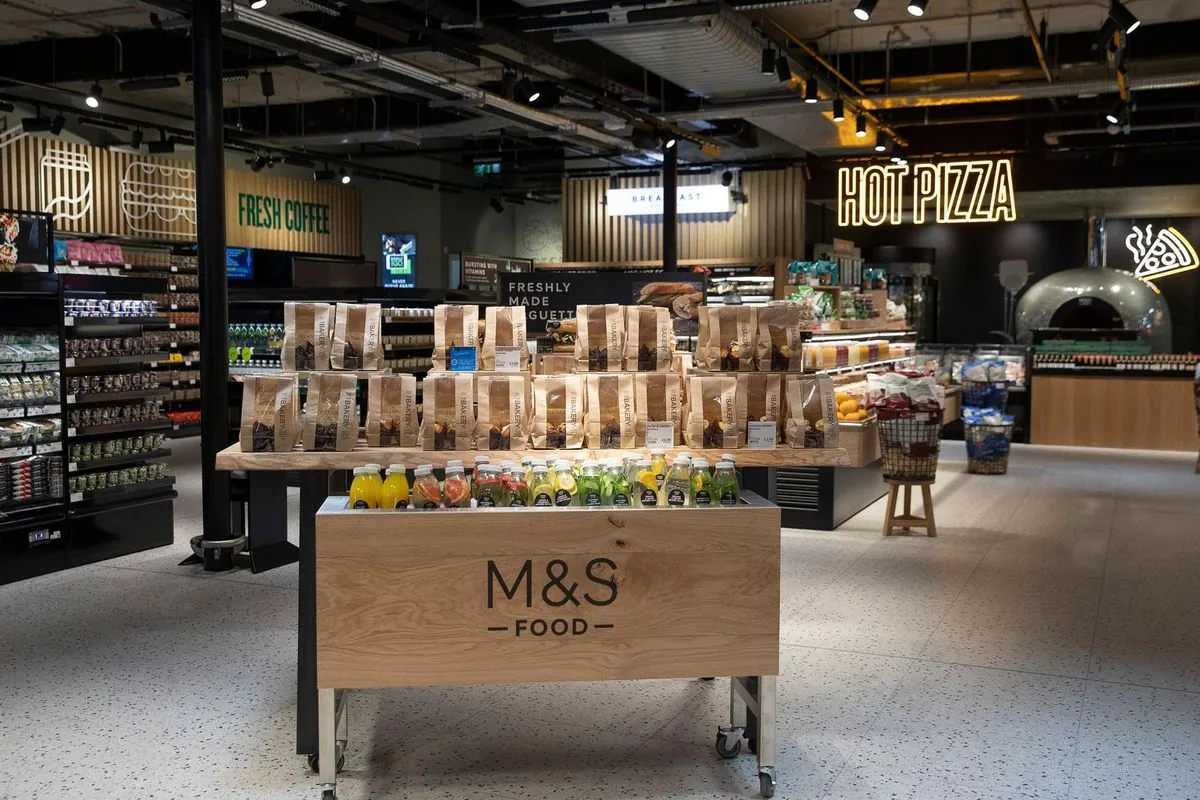M&S Targets Additive Removal in Ready Meals Amid UPF Concerns
Marks & Spencer initiates efforts to eliminate additives from its Eat Well range products, responding to growing concerns over ultra-processed foods. The move faces challenges due to manufacturing complexities and lack of clear UPF definitions.

Marks & Spencer, a renowned British retailer founded in 1884, is taking steps to address concerns over ultra-processed foods (UPFs) by attempting to remove additives from its ready meals and sandwiches. This initiative comes as part of a broader effort to maintain the integrity of its Eat Well range, launched in 2005 to promote healthier eating options.
The company is engaging in discussions with food manufacturers to eliminate ingredients such as stabilizers, acidity regulators, antioxidants, and emulsifiers from products bearing the Eat Well label. This move reflects the growing awareness and concern surrounding UPFs, a term coined by Brazilian scientist Carlos Monteiro in 2009 to describe mass-produced foods containing artificial ingredients and additives.

The push for change follows the publication of "Ultra-Processed People" by Dr. Chris van Tulleken in 2023, which highlighted potential negative impacts of UPFs on health, the environment, and society. This book has contributed to the ongoing debate about the role of processed foods in modern diets.
However, the task of removing UPFs from products is proving challenging. An industry source noted, "Removing an ingredient does not necessarily stop a product from being UPF." This difficulty stems from the lack of an official definition for "ultra-processing," making it complex for manufacturers to fully eradicate these elements from their products.
The issue of UPFs is particularly relevant in the UK, which has one of the highest obesity rates in Europe, with approximately 28% of adults classified as obese. Jonathan Wolf, founder of the Zoe nutrition app, recently linked the increase in UPF consumption to rising obesity rates in Britain, suggesting that long-term consumption of such foods may damage appetite control mechanisms.
"An M&S product only achieves the Eat Well health seal of approval if it fulfils evidence-based, nutritional criteria informed by the Government's Eat Well guide. Quality underpins everything at M&S and as part of that we continually review and reformulate our products to evolve our 'no unnecessary ingredients' approach, listening to customers and industry experts."
The UK government has taken steps to address health concerns related to food consumption. In 2013, they introduced the "traffic light" food labeling system to help consumers make healthier choices, and in 2018, a sugar tax on soft drinks was implemented to combat obesity. The Food Standards Agency, established in 2000, continues to play a crucial role in protecting public health in relation to food.
As the debate around UPFs intensifies, there are calls for stricter regulation. Some industry figures, including Henry Dimbleby, founder of the Leon chain, have suggested banning UPF advertising and introducing warning labels on ultra-processed products. The Labour Party is expected to address the issue of UPFs as part of efforts to improve Britain's health and productivity.
The global ready meals market, valued at $159.15 billion in 2023, faces increasing scrutiny as consumers become more health-conscious. With the average Briton consuming about 50% of their calories from ultra-processed foods, initiatives like M&S's additive removal efforts may signal a shift towards "clean label" products, a concept that gained popularity in the 2010s.
As the food industry navigates these challenges, the balance between convenience, taste, and health remains a critical consideration for both manufacturers and consumers alike.


































